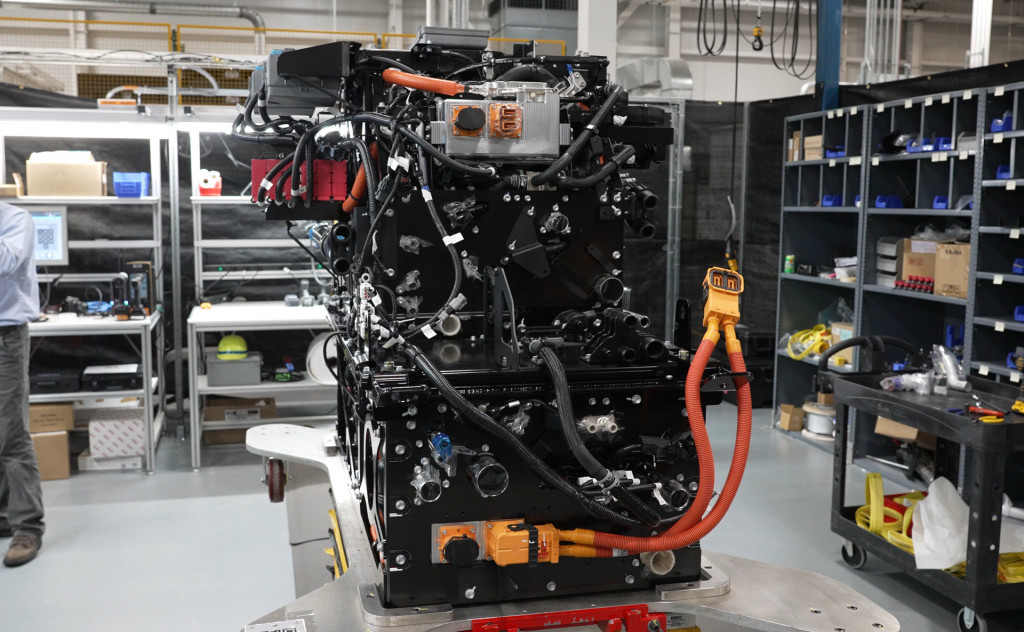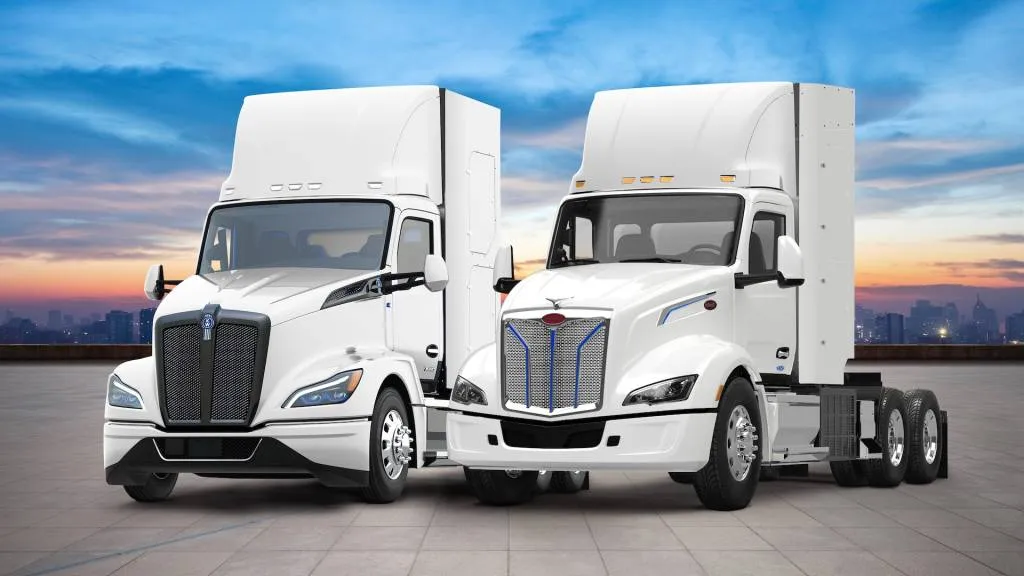Toyota will pivot to pushing hydrogen fuel-cell vehicle sales in Europe and China as it seeks to sell 200,000 of these vehicles by 2030, Reuters reported last week.
This is a strategy shift for Toyota, which previously made North America the focal point for fuel-cell vehicles, according to Reuters. But that approach isn't working. Toyota sold just over 3,900 fuel cell vehicles in 2022, which is less than half of 1% of its global sales of around 9.5 million vehicles, Reuters noted.
However, Toyota chief technology officer Hiroki Nakajima told Reuters that the 200,000-unit target should be easily achievable, in part because of the greater focus on Europe and China. Hydrogen production and demand is higher in those markets, Nakajima said, adding that Toyota also aims to bring costs down and rely on partnerships with other companies.

Toyota fuel cell for heavy-duty trucks
Last month Toyota announced the formation of a Hydrogen Factory business for hydrogen and fuel cells, along with a goal of getting fuel-cell systems into 100,000 vehicles annually by 2030.
Toyota still has fuel-cell plans for the U.S., however. It's on track to start manufacturing hydrogen fuel-cell modules in Kentucky this December. And the automaker is already planning a next-generation fuel-cell system, debuting in 2026, that costs less while improving range and durability, Automotive News reports.
Toyota previously said it could achieve a 37% cost reduction "through technological progress, volume efficiency, and localization," and cost reductions as high as 50% pending further collaboration with other companies, and secure orders for 200,000 vehicles by 2030.

Kenworth and Peterbilt trucks with Toyota hydrogen fuel-cell modules
Earlier this year Toyota also broadened fuel-cell semi plans for the U.S., announcing commercialized fuel-cell trucks combining its fuel-cell kits with chassis from Peterbilt and Kenworth. This follows testing of prototype Toyota-powered Kenworth trucks in California. It's also working with the U.S. Department of Energy and its National Renewable Energy Laboratory (NREL) on using fuel-cell tech to help smooth the grid.
In addition to the Mirai, the only Toyota fuel-cell passenger car currently on sale, the automaker has also announced a fuel-cell version of the Crown on the way—although not necessarily for the U.S.












